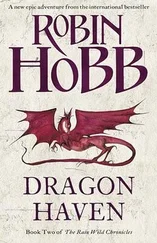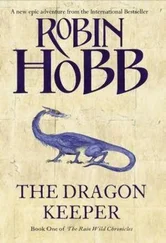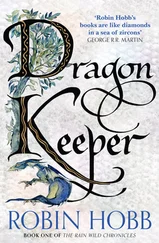Deerskin - Robin McKinley
Здесь есть возможность читать онлайн «Deerskin - Robin McKinley» весь текст электронной книги совершенно бесплатно (целиком полную версию без сокращений). В некоторых случаях можно слушать аудио, скачать через торрент в формате fb2 и присутствует краткое содержание. Жанр: Старинная литература, на русском языке. Описание произведения, (предисловие) а так же отзывы посетителей доступны на портале библиотеки ЛибКат.
- Название:Robin McKinley
- Автор:
- Жанр:
- Год:неизвестен
- ISBN:нет данных
- Рейтинг книги:4 / 5. Голосов: 1
-
Избранное:Добавить в избранное
- Отзывы:
-
Ваша оценка:
- 80
- 1
- 2
- 3
- 4
- 5
Robin McKinley: краткое содержание, описание и аннотация
Предлагаем к чтению аннотацию, описание, краткое содержание или предисловие (зависит от того, что написал сам автор книги «Robin McKinley»). Если вы не нашли необходимую информацию о книге — напишите в комментариях, мы постараемся отыскать её.
Robin McKinley — читать онлайн бесплатно полную книгу (весь текст) целиком
Ниже представлен текст книги, разбитый по страницам. Система сохранения места последней прочитанной страницы, позволяет с удобством читать онлайн бесплатно книгу «Robin McKinley», без необходимости каждый раз заново искать на чём Вы остановились. Поставьте закладку, и сможете в любой момент перейти на страницу, на которой закончили чтение.
Интервал:
Закладка:
In the morning, said the servants, the candles had burnt to their ends and even some of the lamps-full the night before-were empty for they had burnt through the night; and the painter was still working. Each evening he called again for candles, and fresh candles were brought, round and sweet-smelling; and the lamps, refilled, were again set alight. And in the morning, when the servants brought him breakfast, all were still burning, or guttering, or entirely consumed, and the painter still lashed his canvas.
It was not true that he never slept; it was true that he slept little, lying down for a few minutes or half an hour, till the light flickering against his eyelids brought him awake again, rested enough to work a little longer. But the underlying truth was that he hated the dark, hated it here, in this palace, hated and feared it, which he had never done before; some of his best studies had been done of twilight, or of Moon's image across dark water. But all that seemed to belong to another life, and here if any shadow fell undisturbed by light he would move a candle or call for another one, till there was nowhere he could stand, near his new portrait of the most beautiful woman in seven kingdoms, that did not have many tiny tongues of light flicking across his shadow, the canvas's, and that of the paintbrush that he held in his hand. It was true furthermore that he could not sleep with the queen's brilliant painted eyes upon him; no matter how he set the frame, he felt her eyes, felt her command, her passion, her presence; and so after a very few minutes' sleep he found himself pulled to his feet again, staggering toward the canvas, groping for a brush.
It was done in barely a fortnight. When the servants came in one morning they found him collapsed at the new painting's feet, and they rushed forward, full of dread that his heart had burst from overwork-or from the queen's gruelling beauty-and that the painting would remain unfinished.
But as they came up behind him they saw the painting itself for the first time, for he had guarded it from them before, fiercely, almost savagely. They cried out as they looked at it, and fell to their knees. At the sound, the painter stirred and sat up; and they did not notice it, but he carefully looked away from the painting himself, his masterwork, and looked at them instead; and he appeared to be satisfied with what he saw, and heard. She was, they said, the most beautiful woman not only in seven kingdoms, but in all the kingdoms of the world. What none dared say aloud was: she, this splendid, immortal woman on the canvas, is more beautiful than the queen ever was. Or perhaps they had only forgotten, for it had been so long since the queen had walked among them.
The servants seized the painting. The painter might have protested their handling, but they treated it with the reverence they treated the queen herself with; and someone ran for a bolt of silk to swathe it in. Already they had forgotten the painter, who had not moved from where he sat on the floor after recovering from his swoon; but he did not care.
Dimly it occurred to him that he should wonder if the paint might still be damp enough to smear; dimly it occurred to him that he might wish to protect his masterwork, for himself, or, more, from the wrath of she who had commissioned it, for he feared the queen as much as he feared the darkness in this place where the king was mad. But he did not care. When they had wrapped his painting and borne it away, he stood up with a sigh, and packed his paints and his brushes, walking carefully, for he was more tired than he could ever remember being, tired, he thought, almost unto death.
He walked very carefully around the tall, wide-raking arms of the guttering candles in their candelabra, and the slim shining globes of the oil lamps, none of whose light he disturbed, for all that the morning sun was now pouring through the windows; for even the possibility of shadows in this place was more than he could bear, especially now, as his own fatigue claimed him. Almost it was as if the painting itself had been some kind of charm, even if a malign one, a demon holding off imps by its presence, and he now felt exposed and vulnerable. He rolled up his breakfast in a napkin and made to leave the room he had not left for a fortnight.
He paused to look at the other portrait, that which had won him the commission he knew he had executed better than any other painter could have done it; very rough it looked to him now, rough and yet real, real and warm and joyous. He looked at it, and thought of the canvas under it, that he might lay bare and paint again; but he left it.
He went downstairs with his two bundles under his arms, and his cloak and his extra shirt in a third bundle on his back, and he found his way unassisted to the stables. There he took the horse he had hired weeks ago, scrambled onto it among the harness that had held his canvases, and pointed its nose for home. No one stopped him, for the word had already gone out that the painting was done and that it was a masterwork; but no one stopped him either to praise him for his genius. He rode out through the court gates, and down the road, and at the first river he had a very long bathe, and then lay on the shore for a while and let the sun bake into his skin, while the horse browsed peacefully nearby.
Then he clambered on it again, grateful that he had a horse to ride, for he was too exhausted to walk, though he knew he could not have stayed in that palace another hour; and they kept on, for the horse seemed to be glad to be going home too, or perhaps it was merely bored from standing too long in its stable, however large the box and generous the feed. And though the way was a long one, and the journey back made in a haze of weariness so profound as to be pain, he was not sorry that it was no step shorter, and he was glad that his own country shared no border with that queen and king's.
But the painter lost nothing for having left his masterwork so cavalierly, for the minister of finance sent six horses with panniers full of gold across their backs after him. And so he never painted another fat merchant again, although it was observed that he never painted a beautiful woman again either, but often chose to paint the old, the poor, the kind, and the simple. But because he was the artist who had painted the most famous portrait in the world, of the most beautiful woman in seven kingdoms, everything he set his name to now and ever after sold easily; and soon he had not only a horse (for the first thing he did when the twelve panniers of gold caught up with him was to buy the horse he had ridden home) but a saddle. And then a house, and a wife, and then children, and he loved his family very much; and so he believed it had been worth it. But it was a long time before he could sleep without leaving a candle lit; and he never ventured across the borders of his own land again.
THREE
THE QUEEN, WHO HAD BEEN THE MOST BEAUTIFUL WOMAN IN seven kingdoms, had her new portrait set by her bed, still wrapped in silk; and she called for the king her husband. And he came, and everyone noticed that while he was thinner, and his face was grey and haggard, he was no longer mad; and he sat down quite gently at the queen's side, and took her hand.
"I am dying," she said, through her veil, and the light cloth rippled with her breathing. The king shivered, and clasped her hand tighter, but he said nothing.
"I want you to promise me something," she said, and he nodded, a stiff, tortured little jerk of the head; and he never took his eyes from where her face was, under the veil. "After I die, you will want to marry again-"
"No," said the king in a cracked whisper, and now his trembling grew worse, and his voice sounded like no human voice, but the cry of a beast or bird. "No. "
"Yes," said the queen, and held up her free hand to silence him: or rather lifted her fingers for a moment from their place on her coverlet, for she had little strength left for movement. "I want you to promise me this: that you will only marry someone as beautiful as I was," she said, "so that you will not always be comparing the poor girl to me in your memory, and be cruel to her for it." There was a strange tone in the queen's voice; were it not so sad an occasion and were she not so weak, it might have been thought that the tone was of triumph.
Читать дальшеИнтервал:
Закладка:
Похожие книги на «Robin McKinley»
Представляем Вашему вниманию похожие книги на «Robin McKinley» списком для выбора. Мы отобрали схожую по названию и смыслу литературу в надежде предоставить читателям больше вариантов отыскать новые, интересные, ещё непрочитанные произведения.
Обсуждение, отзывы о книге «Robin McKinley» и просто собственные мнения читателей. Оставьте ваши комментарии, напишите, что Вы думаете о произведении, его смысле или главных героях. Укажите что конкретно понравилось, а что нет, и почему Вы так считаете.












